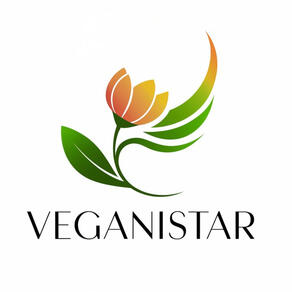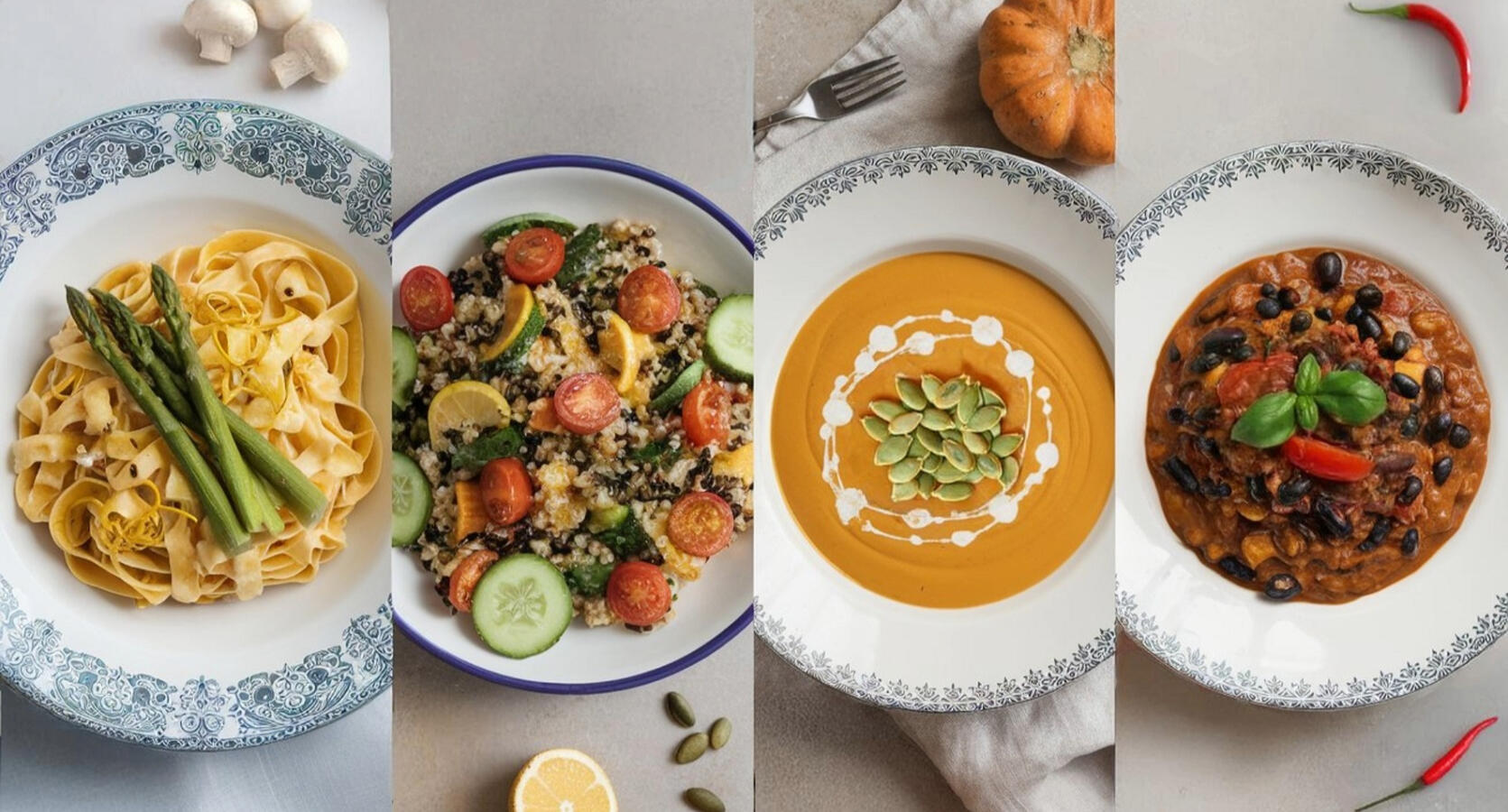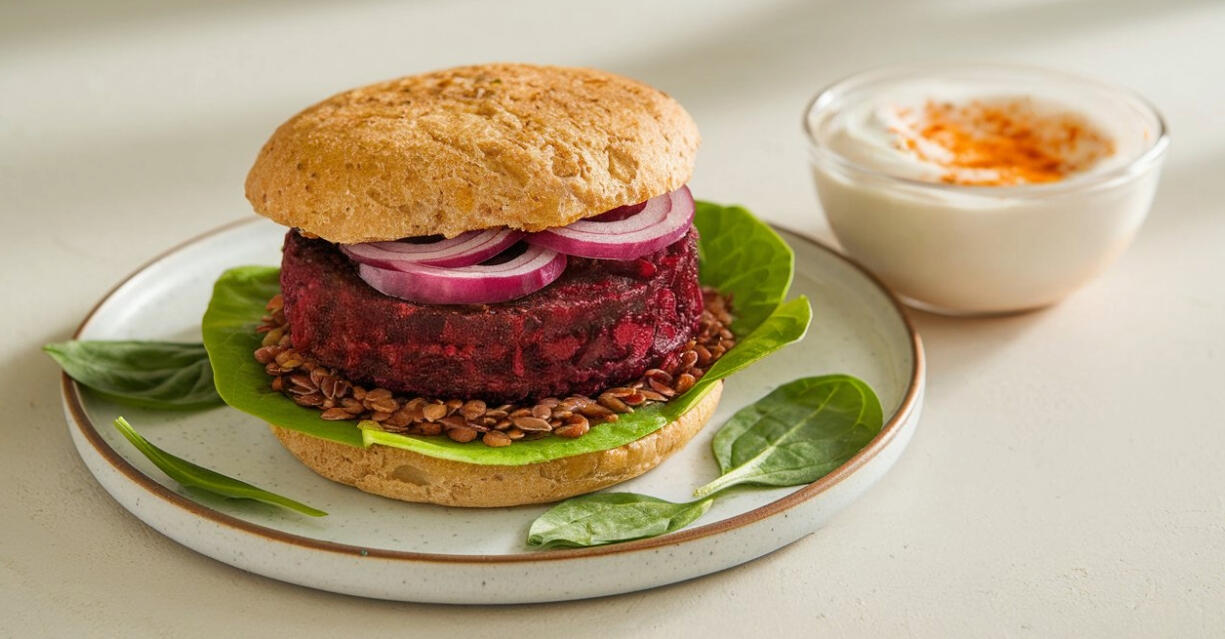
Veganistar
Natural Food inspiration, Season by Season
Explore seasonal vegan and vegetarian recipes that celebrate fresh ingredients and wholesome flavors. Embrace a plant-based lifestyle with delicious meals for every season !A Digital Heritage & A New VisionCreated in 2013, Veganistar was originally an influential blog dedicated to sports and nutrition. Over a decade, it welcomed more than 500,000 visitors, sharing practical articles about common mistakes in sports and comprehensive guides about nutrition and proteins.Our Renaissance
In 2024, we took over this valuable domain to breathe new life into it while honoring its heritage. This transition marks a new chapter, transforming a sports and nutrition blog into a platform dedicated to plant-based eating through the seasons.
Today's Bloom
Today, Veganistar flourishes as a sanctuary where nature's rhythm guides our choices. We believe in the simple joy of eating with the seasons, creating delicious meals that nourish both body and soul. Our mission is to show that plant-based eating isn't just a diet—it's a beautiful journey of discovery that anyone can embrace.
We welcome everyone, whether you're exploring veganism, vegetarianism, or flexitarianism. Our aim is to provide support for those looking to transition to a plant-based lifestyle or simply diversify their meals. Together, let's explore the natural abundance each season brings and discover how easy and enjoyable it can be to incorporate more plant-based foods into your diet.
Join Our Journey
Whether you're taking your first steps into plant-based eating or seeking seasonal inspiration, you're welcome here. Let's explore together the natural abundance each season brings. Feel free to adjust any part of the text to better fit your vision!
Nature's Calendar, your guide to exploring the diverse world of fruits, vegetables, and plants throughout the year. This calendar highlights seasonal produce while celebrating the rich bounty that nature provides. Discover how to incorporate local and seasonal ingredients into your diet, while enjoying access to a wide range of products for a balanced and delicious nutrition.
Impact of Seasons on Vegan and Vegetarian DietsEating seasonally as a vegan or vegetarian offers numerous benefits for health, the environment, and local communities. By consuming fruits and vegetables at their peak ripeness, vegans and vegetarians can enjoy optimal nutritional content and flavor. This practice also promotes dietary diversity throughout the year, ensuring a wide range of nutrients.Environmentally, eating seasonally reduces the carbon footprint associated with transportation and storage of out-of-season produce. On average, a vegan diet produces about 1.5 kg of CO2 equivalent per day, while an average omnivorous diet produces about 3.3 kg, representing a reduction of approximately 55%. Vegetarian diets fall between these two figures, with a carbon footprint of about 2.2 kg per day.Moreover, switching to a plant-based diet can reduce agricultural land use by up to 76% and greenhouse gas emissions by up to 49%. This practice also supports more sustainable farming methods, as crops grown in their natural season typically require fewer artificial inputs such as pesticides or heated greenhouses. Indeed, food production is responsible for about 26% of global greenhouse gas emissions, a large portion of which is attributed to livestock farming.Furthermore, a vegan meal emits an average of 0.5 kg of CO2 equivalent, compared to 1.7 kg for a meat-based meal, a reduction of more than 70%. If just 10% of the world's population adopted a vegan diet, it could reduce food-related greenhouse gas emissions by about 176 million tonnes per year.
| Fruits | Vegetables |
|---|---|
| Apples | Carrots |
| Pears | Beets |
| Kiwis | Pumpkin |
| Grapes | Butternut Squash |
| Mandarins | Leeks |
| Chestnuts | Swiss Chard |
| Clementines | Brussels Sprouts |
| Oranges | Endives |
| Lemons | Spinach |
| Pomelos | Turnips |
| Pomegranates | Parsnips |
| Persimmons | Sweet Potatoes |
| Hazelnuts | Salsify |
| Walnuts | Jerusalem Artichoke |
| Black Radish | |
| Celery | |
| Broccoli | |
| Cauliflower |
November :
In November, nature offers us a beautiful variety of seasonal products. It is the perfect time to savor winter vegetables and fruits that are beginning to ripen. The days become cooler, and comforting dishes are ideal for gathering around the table. If you need any further adjustments or additional content, feel free to ask!
To start the day well, a good breakfast is essential. A balanced morning nutrition should include complex carbohydrates, proteins, and healthy fats. Avoid simple sugars and overly processed foods that can lead to quick fatigue.
Simple Vegan Cheese
Ingredients:
200 g silken tofu (or firm tofu)
1 tablespoon lemon juice
1 teaspoon salt
Herbs or spices of your choice (chives, garlic powder, paprika, etc.)
Instructions:
Prepare the tofu: On a cutting board, crumble the tofu into small pieces with a knife or lightly mash it with the palm of your hand. This will help achieve a creamy texture.
Mix the ingredients: Transfer the crumbled tofu to a bowl. Add the lemon juice, salt, and your chosen herbs or spices. Mix well with a fork until you achieve a homogeneous consistency.
Taste and adjust: Taste and adjust the salt or spices according to your preferences. This vegan cheese can be stored for 1 week in a glass Tupperware container.Serving Suggestions:
To add vitamins and omega-3s beneficial for the nervous system, you can accompany your vegan cheese with:
Mandarin wedges: Mandarins add a sweet touch and are rich in vitamin C.
Nuts: Nuts are an excellent source of omega-3s and add crunch to your dish.
Serving
Serve the vegan cheese on toast or crackers, accompanied by mandarin wedges and a few nuts for a nutritious and balanced breakfast! Feel free to modify any part as needed!
Vegan Beetroot and Potato Burgers (for 2)
Ingredients
For the burgers:
1 cup red lentils
3 cups +6 cups water
2 small raw beetroots, peeled and cut into chunks
2 medium potatoes, peeled and cut into quarters
1 whole red onion, sliced into rings
1 tablespoon whole flaxseeds
1 teaspoon paprika
1/2 teaspoon ground cumin
For serving:
2 burger buns (preferably gluten-free)
Spinach or Swiss chard leaves (or lettuce)
Slices of tomato
Avocado (optional)
For the sauce:
Almond-based yogurt or semi-skimmed yogurt for vegetarians
A pinch of paprika
Instructions
Cook the lentils:
In a saucepan, bring 3 cups of salted water to a boil.
Add 1 cup of red lentils and cook for 12 minutes.
Remove from heat and stir in the whole flaxseeds. Let sit for 2 minutes.
Drain and set aside.
Cook the vegetables:
In another saucepan, cook the beetroot and potato chunks for about 20 minutes, until tender.
Drain and set aside.
Prepare the burgers:
Mash the cooked beetroot and potatoes together.
Form two burger patties from this mixture.
Assemble the burgers:
On the bottom half of each bun, spread a generous spoonful of cooked lentils.
Place the beetroot and potato burger on top of the lentils.
Add the sliced red onion, spinach (or Swiss chard or lettuce), tomato slices, and avocado if desired.
Top with the other half of the bun.
Prepare the sauce:
In a bowl, mix the almond yogurt (or semi-skimmed yogurt) with a pinch of paprika using a fork until it reaches a liquid consistency.
Optional additional cooking:
If desired, you can toast the buns for 1 minute in a hot skillet.
You can also toast the burgers for 1 minute on each side in the skillet.
Serve:
Serve immediately with a small bowl of yogurt sauce on the side.
Enjoy your Vegan Beetroot and Potato Burgers with this delicious sauce!
A butternut squash soup for the dinner.
Ingredients:
1 butternut squash (about 800g)
1 onion
2 carrots
500ml vegetable broth
100ml plant-based cream
Salt and pepper
Pumpkin seeds for garnishInstructions:
Prepare the Ingredients:
Peel and cube the butternut squash.
Chop the onion and slice the carrots.
Sauté the Vegetables:
In a large pot, heat a little olive oil over medium heat.
Add the onion and sauté until translucent.
Add the carrots and butternut squash, and sauté for about 5 minutes.
Add the Broth:
Pour in the vegetable broth and bring to a boil.
Reduce the heat and let it simmer for about 20 minutes, or until the vegetables are tender.
Blend the Soup:
Use an immersion blender to puree the soup until smooth. If you don’t have an immersion blender, you can transfer it in batches to a regular blender.
Incorporate the Cream:
Stir in the plant-based cream and mix well. Season with salt and pepper to taste.
Serve:
Serve hot, garnished with pumpkin seeds for a crunchy touch.Why This Recipe?
This soup is not only delicious but also packed with nutrients, making it perfect for chilly November evenings. Butternut squash is an excellent choice this season as it is rich in vitamins A and C, as well as fiber. Feel free to adjust any part of this translation or let me know if you need further assistance!
Text
Welcome to our Meal Plan section! This area is dedicated to providing you with valuable resources to enhance your vegan or vegetarian journey. Here, you'll find a variety of meal ideas, tips, and inspiration to help you adopt a healthy and balanced diet.
While all the content on our site is free, maintaining and improving it requires support. We have partnered with various organizations related to vegetarian and vegan food. If you appreciate our resources and would like to help us continue providing this information, please consider exploring our partner links. Your support makes a difference!
Thank you for being part of the Veganistar community!



